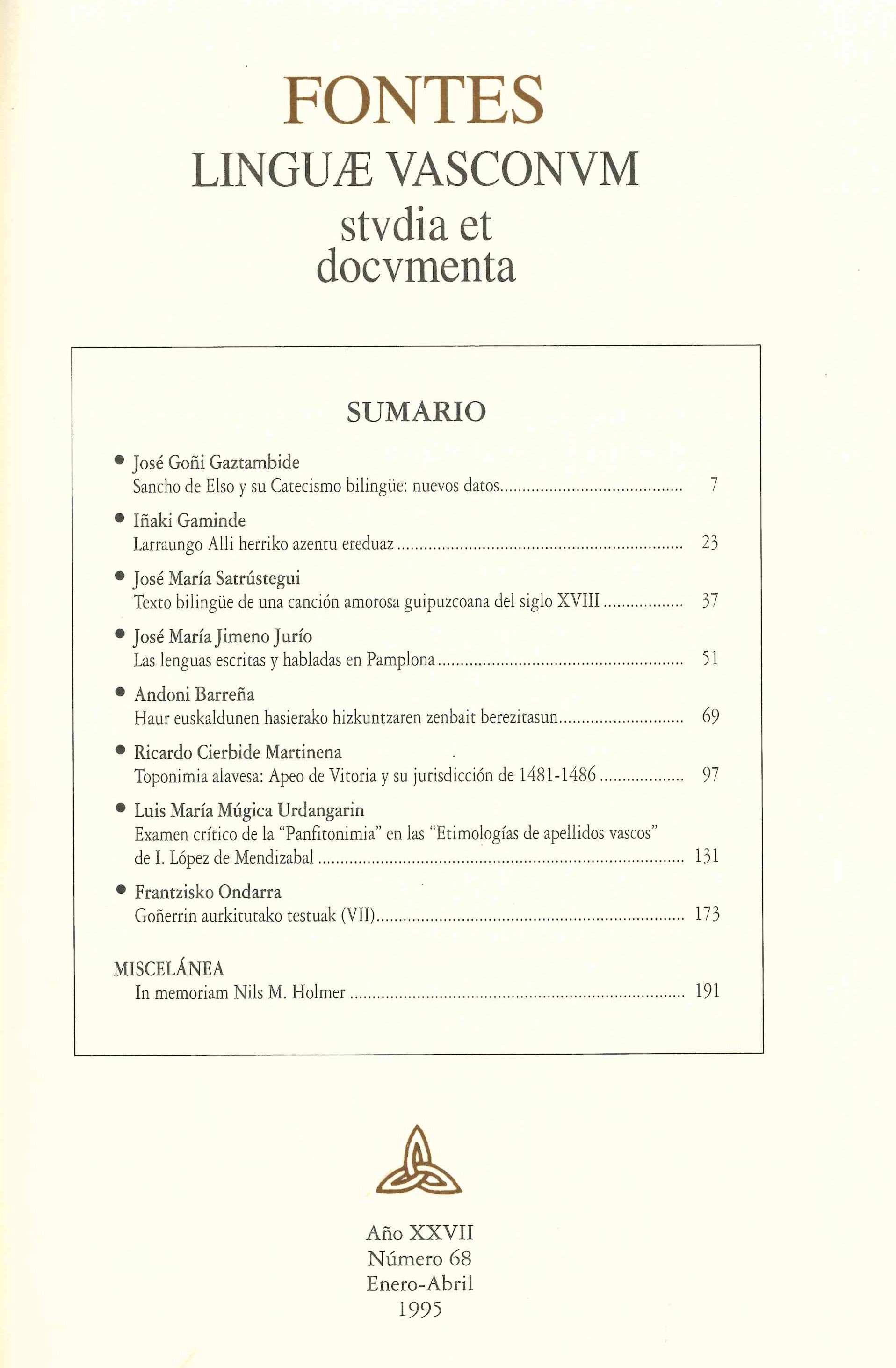Haur euskaldunen hasierako hizkuntzaren zenbait berezitasun
Abstract
In the process of learning the Basque language, when Basque children begin to pronounce two or more words together, they are in the first stage of acquistion, in which they lack grammatical or syntactic knowledge for the construction of their linguistic outpur. Following this presyntactic period in which linguistic output is constructed based on semantic-pragmatic principies amongst others, the syntactic development of Basque children around the age of two years is gradual and, to some extent, qualifiable as uniform, and does not emerge through the aforementioned semantic-pragmatic principies, rather independently.
This work analyses the linguistic outpout of three Basque children, two of them bilingual in Basque and Spanish, and one monolingual, who were recorded on video, on a monthly bais, from the age of one and a half to three years of age, in sessions of 30 minutes each. From the recordings, their acquisition of the determination of nominal phrases, the acquisition of the different components and the order of the nominal phrase, the use of grammatical cases, the use of ferbal aspects, the acquisition of verbal sequences, etc., were all analysed.
##about.statistics##
Copyright (c) 1995 Andoni Barreña

This work is licensed under a Creative Commons Attribution-NonCommercial 4.0 International License.







